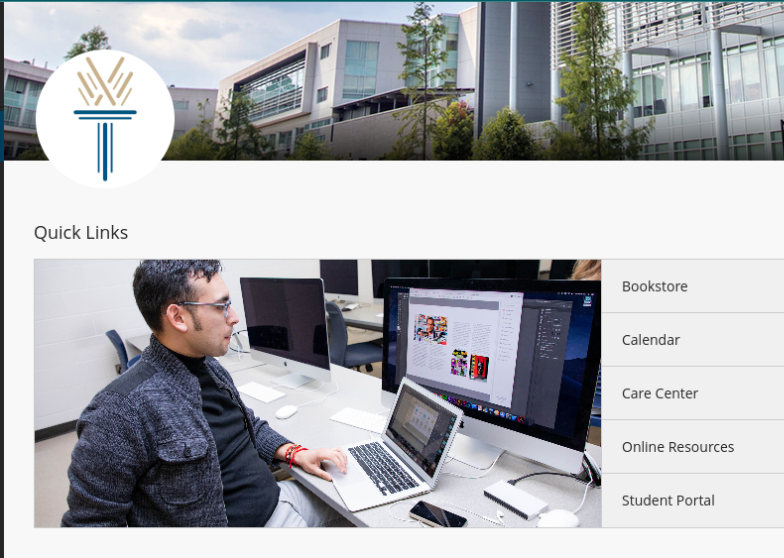Choosing which courses to sign up for next school year can be difficult, especially for rising juniors and seniors trying to raise their GPA and create an impressive transcript for college. The decision between taking Advanced Placement (AP) or College Credit Plus (CCP) courses is an added stress to this process, as they both have unique advantages and drawbacks.
Most kids in high school are already aware of what AP courses entail and their many benefits, including possible college credit, GPA boost and an example of your academic rigor — all of which can help impress college admissions officers. However, there are some underlying benefits to taking AP courses that aren’t as widely discussed.
Sarah Joyner, the Career Development Coordinator at Wakefield High School, clarifies one of the main differences between AP and CCP courses that students should consider when deciding which is a better fit.
“The advantages of the AP classes are that they are taught by Wakefield High School teachers who care about you and are going to have study sessions and give you the opportunity to make up work and all sorts of things like that versus CCP, which is going to be taught by a Wake Tech professor and in most cases they don’t have the same interest in you,” Joyner said.
With this in mind, understanding your strengths and weaknesses in each subject is crucial when deciding which courses you should take as an AP or a CCP course. AP classes offer more support while still preparing you for the rigors of college.
In a sense, students can use AP courses to ease into the intensity of college-level courses. It also helps to understand that AP courses offer more of a hands-on, discussion-based environment that you will most likely see in face-to-face classes on campus. In contrast, CCP courses, especially those that are online, may focus more on preparing you to handle your time and workload without the extra support of teachers.
Tiana Ried, Dean of Students, elaborates on her experience advising kids on which courses they should look into and preparing them for the learning curve of higher-level classes.
“[What I tell many students is] with AP classes, you do not earn the college credit unless you make a three, four or five on the exam,” Ried said. “AP is given at your school during your school day with your peers and [forces you] to dig deep, have critical thinking conversations and prepare you for that classroom on campus, which is a big learning curve.”
Another key factor that students should consider when deciding whether to take AP or CCP is what they are looking to achieve by taking these higher-level courses. This may be an overbearing obstacle that is tough to face, but it is much less daunting when broken down from the broad question of what you want to do in life to your next steps in your career as a student or elsewhere.
“[The CCP] transfer program is so beneficial because students can go ahead and start taking courses within the particular programs [that align with their future degrees], and [the programs] have an agreement with all the university system schools that they will take those credits,” Ried said.
No matter which route students decide to take, AP and CCP courses are excellent opportunities for rising juniors and seniors to explore. However, these benefits can only be exploited if the students are introduced to them. Rising junior Myndee Ly discusses her current understanding of the difference between AP and CCP classes.
“I think AP classes are a great [way to] boost your GPA and get experience for future [college] classes,” Ly said. “As for CCP, [I think] they are a way to get college credit, but you have to do the classes [on campus].”
While it is true that some courses through the CCP program at Wake Tech require students’ in-person attendance, recently, Wakefield has changed their policy. Previously requiring students to leave campus for CCP courses, they now allow certain students to stay on campus in the library if they don’t have a means of transportation or have other classes and/or clubs to attend later in the day.
“If [students with transportation complications] are interested in signing up for CCP classes, historically we have not allowed them to stay on campus, but we’re beginning to let them stay on campus, [and] include it in their schedule because they can’t leave and don’t have access to transportation,” Ried said.
No matter which you choose, there are many advantages to AP and CCP courses, and both are worth experiencing as a high school student preparing for the future. Outside of understanding the coursework, most students learn some skills and lessons through these courses that help them smoothly transition from high school to college. Eiad Yakout, a high school senior, has learned some of these lessons through his experience taking multiple AP and CCP courses.
“I have been preparing myself [for college] study-wise and habit-wise so that I can understand how to organize my time well enough so that when I got to college, I wasn’t blown away by how different it was than high school,” Yakout said.
Before deciding which classes to sign up for, it is important to consider all factors and choose the option that best fits your needs for learning and success.
“Both CCP and AP classes are great opportunities to get a taste of what higher level classes are like and at the same time push yourself to try different kinds of classes,” Yakout said. “It’s a really good experience that everyone should at least try.”













